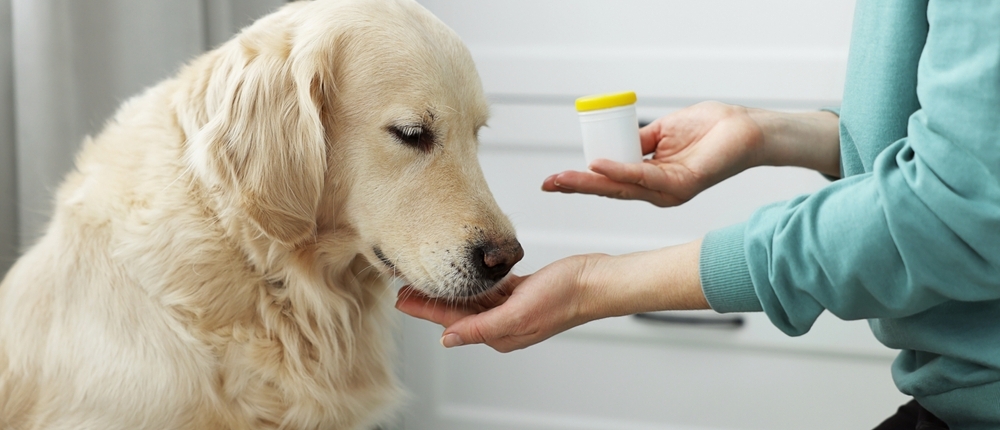My Dog Is Already on Meds – Can Therapies Still Help?
The short answer: Yes – and they often make all the difference.
When your dog is already taking pain medications, it’s natural to wonder:
Is there any point to doing more? Will rehab or other therapies even help?
The truth is, meds alone are rarely enough to address the full picture of your dog’s condition – especially if you’re dealing with arthritis, cruciate issues, spinal conditions, or post-surgical recovery.
In fact, adding targeted, supportive therapies can often:
- Improve your dog’s mobility faster
- Reduce their long-term reliance on medications
- And help you get clearer answers about what’s really going on
Here’s exactly how that works, and what you can do right now to support your dog more effectively.
7 Reasons to Add Rehab & Integrative Therapies (Even if Your Dog Is Already on Medication)
1. Medication masks pain – it doesn’t fix the problem
Pain relief is essential, but it’s only step one in a complete care plan.
Just like humans recovering from injury or surgery, dogs need physiotherapy and muscle retraining to:
- Rebuild strength
- Correct imbalances
- And restore function
Otherwise, you risk the same issue recurring – or causing secondary problems in other parts of the body (e.g. the “good leg” breaking down after cruciate surgery).
2. Therapies target the root cause, not just the symptoms
Rehab therapies like:
- Laser therapy
- Electromagnetic stimulation (EMS)
- Shockwave Therapy
- Regenerative Medicine (PRP and Stem Cell Therapy)
- Therapeutic exercises
- Acupuncture …work on a cellular and structural level to
- Reduce inflammation
- Repair tissues
- Improve circulation
Reprogram muscle memory
These are changes that meds alone can’t achieve – and they’re often what gets your dog over the plateau.
3. Movement is medicine – but only the right kind
A dog who’s on medication might look more comfortable, but are they moving in a way that supports healing, or are they still compensating?
That’s where rehab shines.
At The Dog Mobility Clinic, we assess your dog’s movement in real time, then create a custom plan to:
- Retrain proper walking patterns
- Strengthen specific muscle groups
- Avoid activities that make things worse (like stairs or slippery floors)
You’ll receive clear home instructions so you can help your dog between sessions.
4. You may be able to reduce medications over time
With consistent therapy, we’ve seen dogs:
- Regain independence
- Improve their function
- Reduce or even come off daily pain meds under veterinary supervision
This isn’t guaranteed, but we design your dog’s plan with that outcome in mind.
5. Rehab helps prevent problems in the future
If your dog has had surgery or chronic issues in one area (like a knee or hip), it’s common for them to develop issues in another (often the opposite leg or spine).
Early intervention = better long-term outcomes.
Rehab helps you stay ahead of the curve.
6. A pain trial can reveal what meds aren’t telling you
Many dogs hide pain, even on meds.
We often recommend a short pain trial with a diary, so you can track your dog’s movement and comfort over a few days – it helps us understand what they’re really feeling at home.
7. It’s never too early (or too late) to start
Whether your dog just had surgery, is living with arthritis, or is a senior who’s “just slowing down” – there’s a rehab solution that can help.
We treat dogs at every stage of recovery, with programs tailored to:
- Post-cruciate rehab
- Arthritis support
- Spinal and neurological conditions
- Senior mobility programs
- Pain management using laser, EMS, therapeutic exercises, shockwave, stem cell therapy, and more
What to Do Next: Book a Mobility Consultation
If your dog is already on meds but still struggling with mobility, energy, or pain – don’t wait.
Therapy can help.
We offer:
- On-site consultations in Seymour
- Online Consultations Australia-wide
- Online Community for advice and support
🔗 Book your consultation here.
Let’s figure out what’s really going on – and what your dog needs to feel better, move better, and live better.






